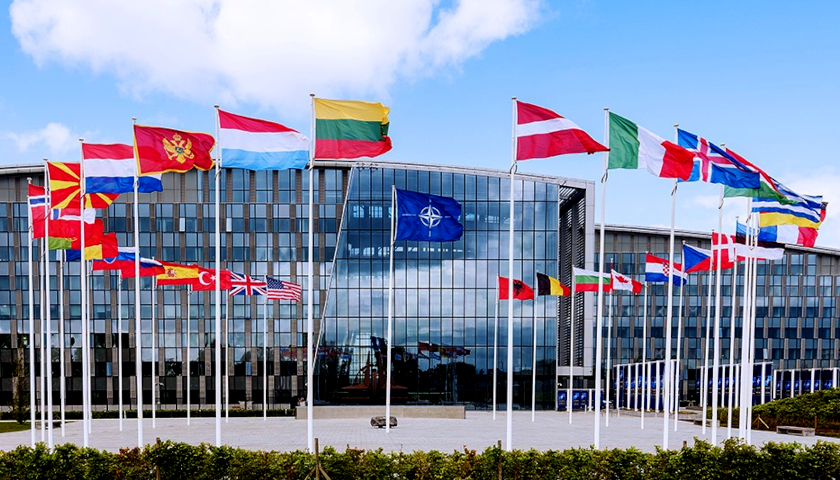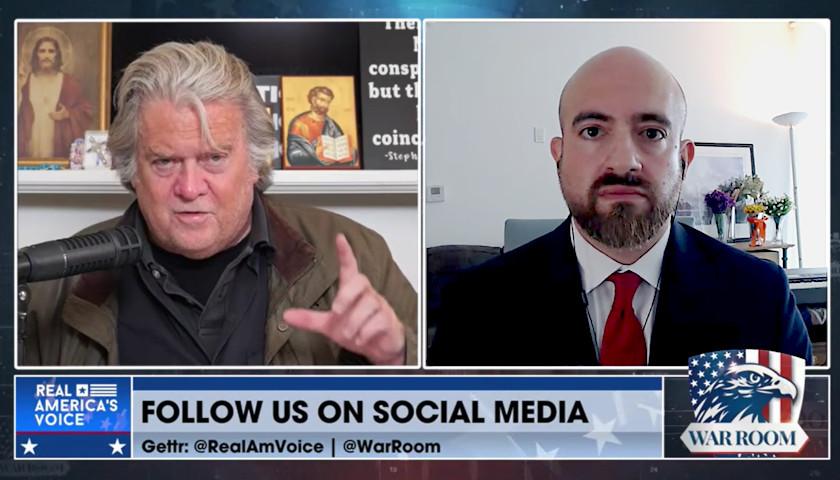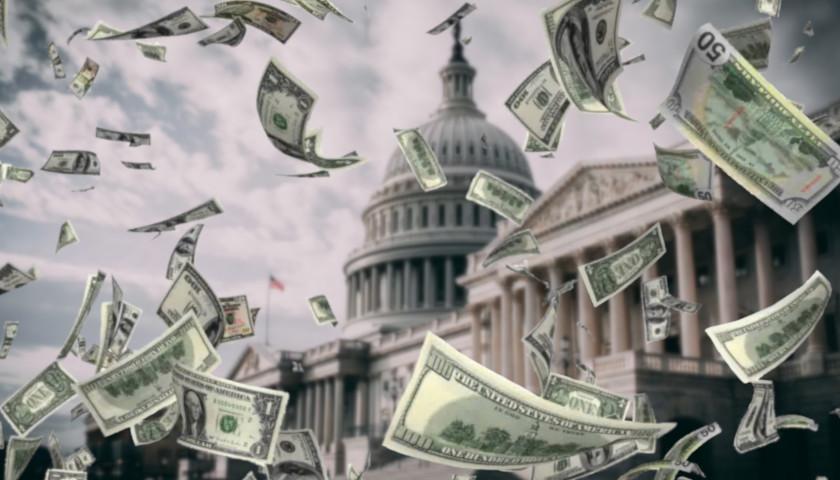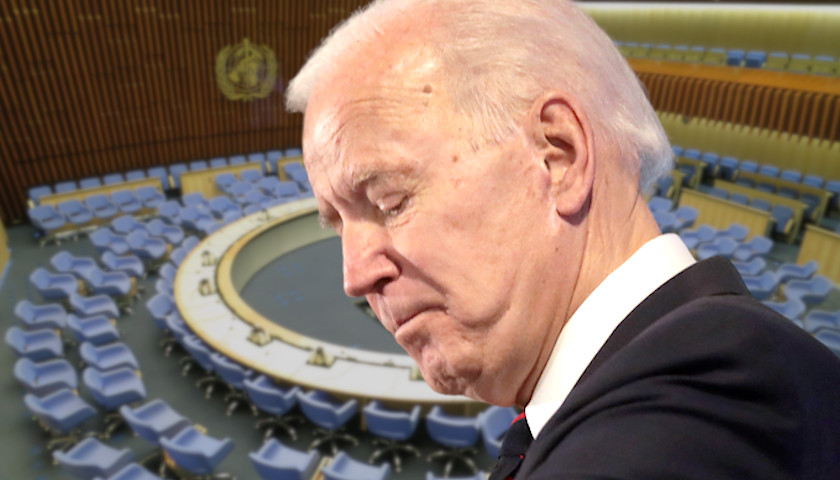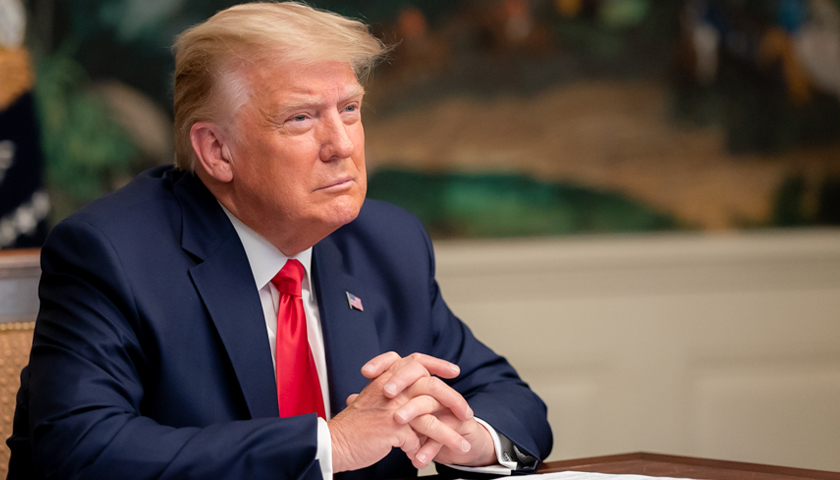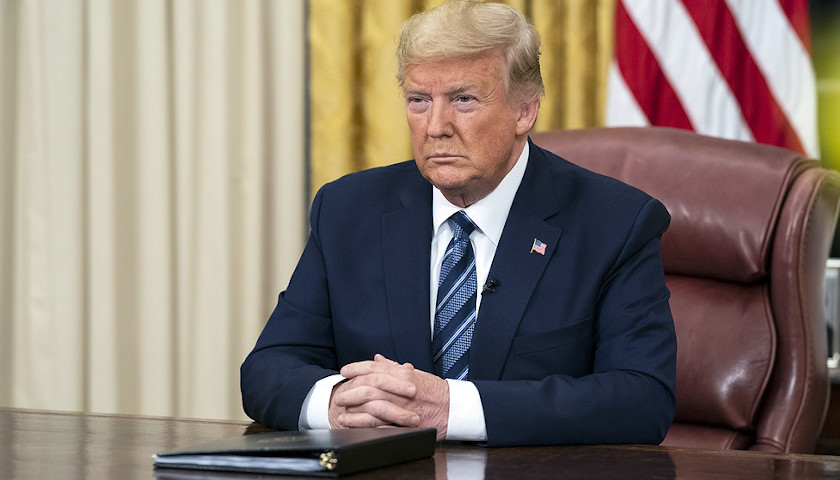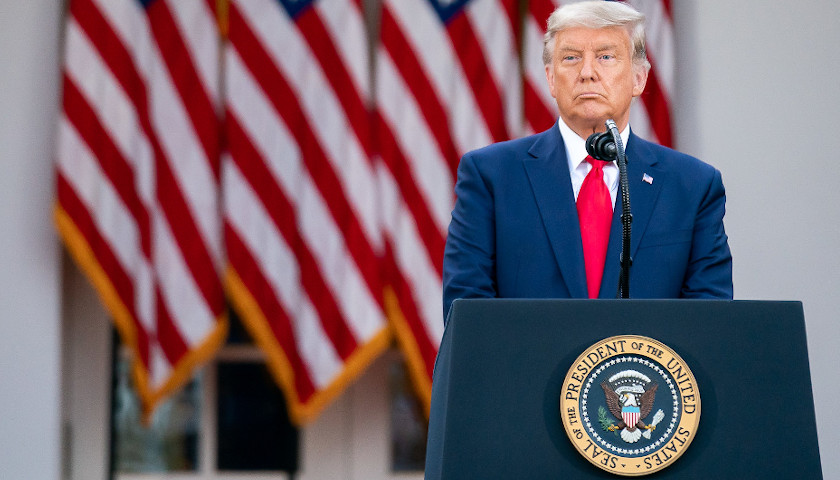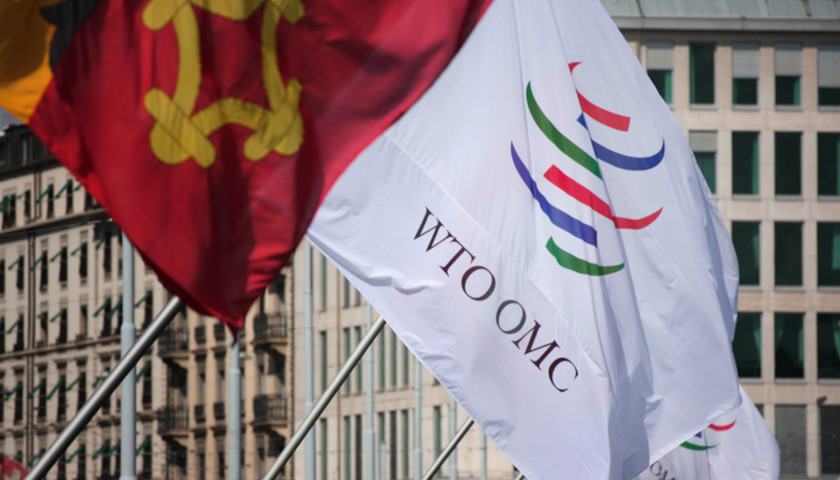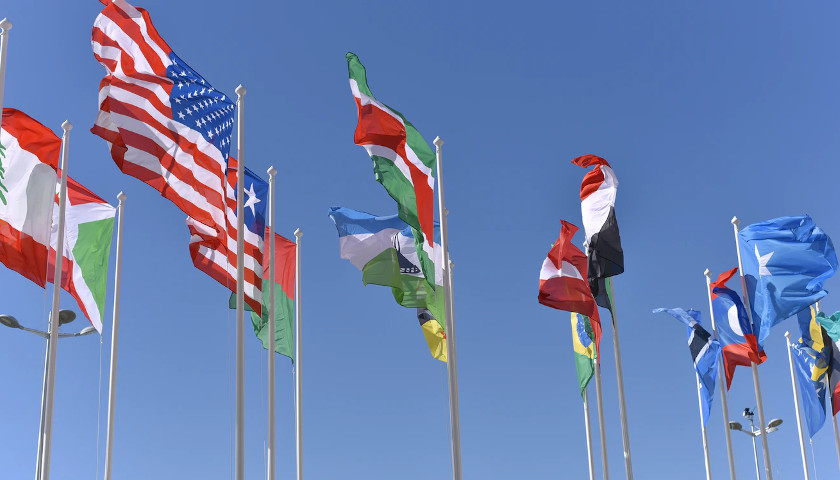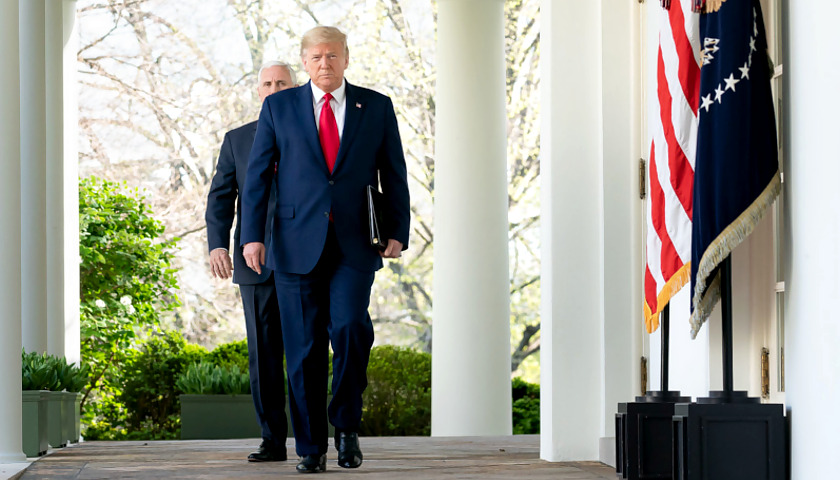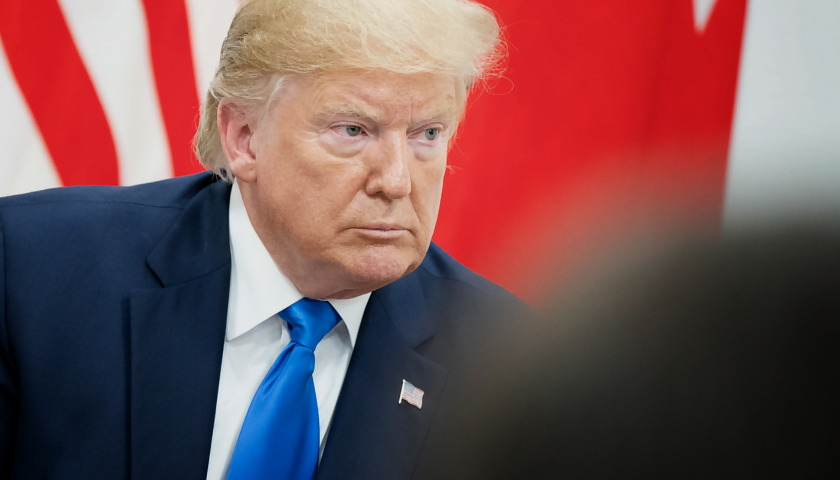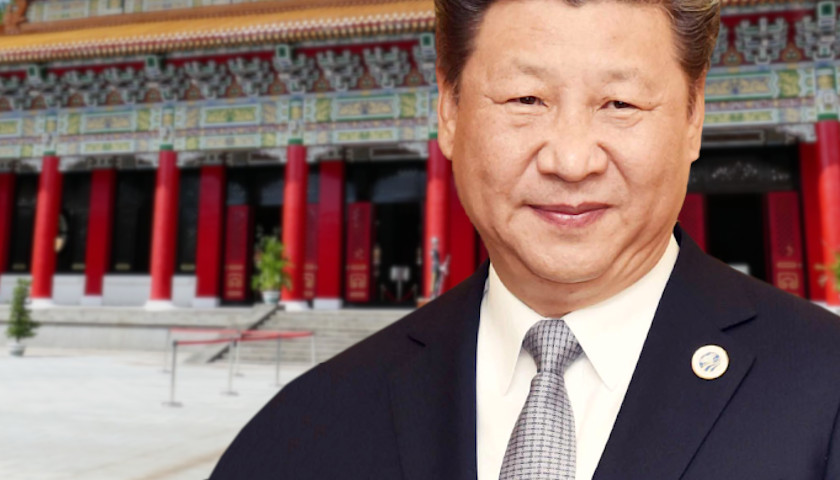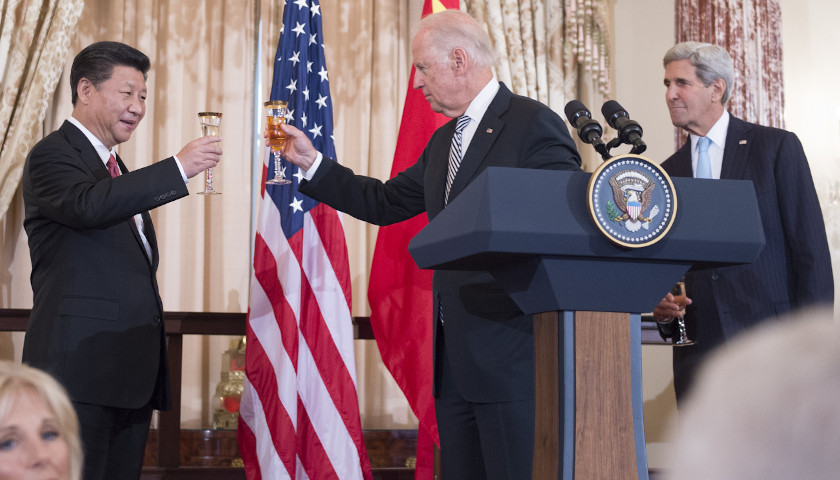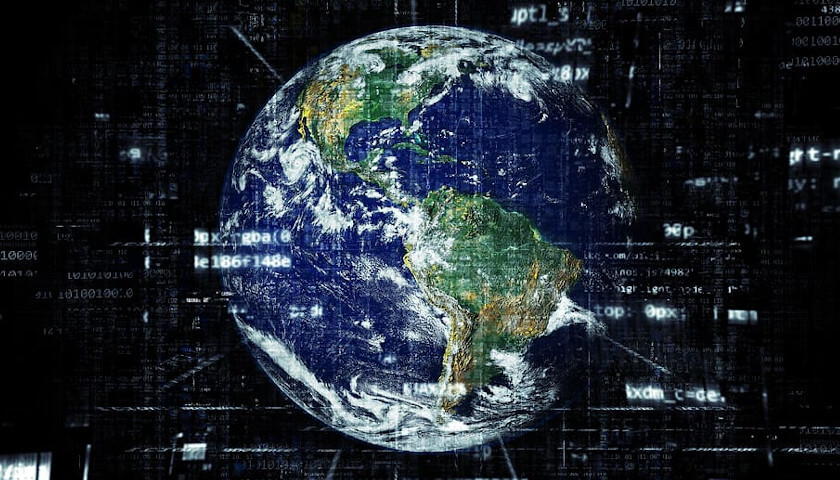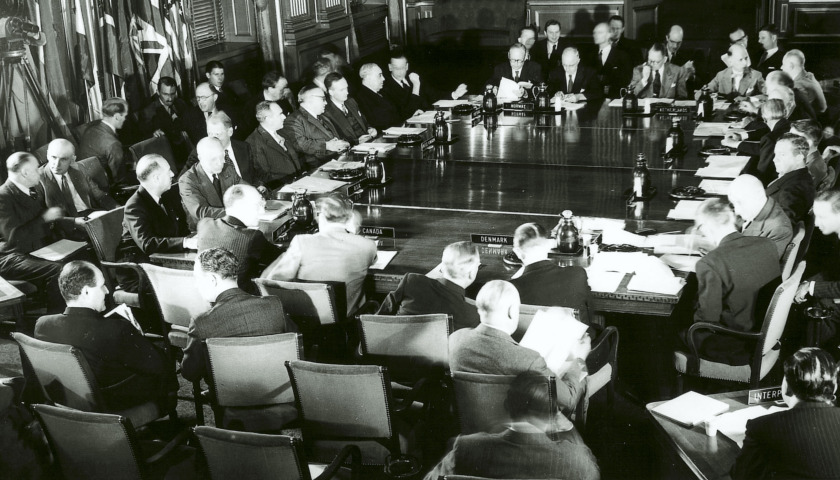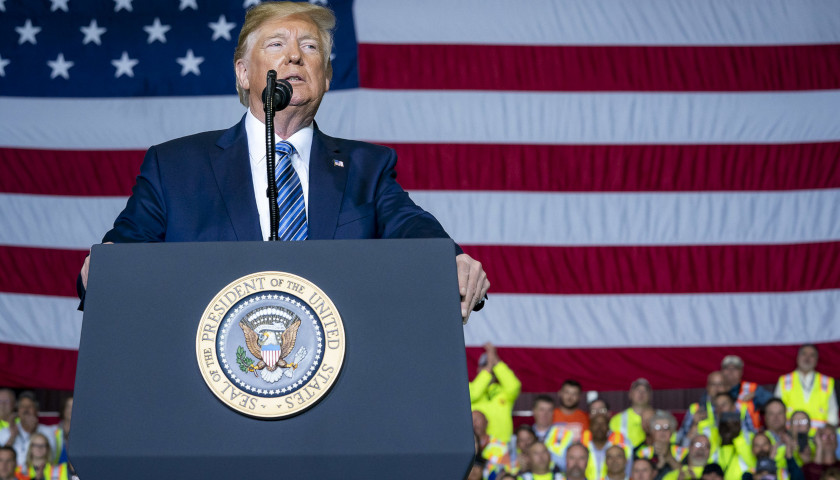Events over the past months have exposed a very stark divide between the globalist, collectivist, “woke” authorities of Europe and the Make America Great Again (MAGA) patriot movement here in the United States. To be frank, it is almost as if the snide, effete elitists who control the nations of the European continent want to rub our noses in their horror show.
Read MoreTag: globalism
Mike Benz Details How the Foreign Policy Establishment is Actively Fighting Populism in the U.S.
Mike Benz, former Trump state department official and current Executive Director of the Foundation for Freedom Online, joined Monday’s edition of Steve Bannon’s War Room where he explained why the foreign policy establishment is the main driver of censorship in the U.S.
Read MoreCommentary: American Globalists’ Motivation
It is too easy, and dangerously misleading, to examine the most controversial globalist policies combined with America’s most obvious weaknesses and conclude that American power, and the future of globalism is in jeopardy. In both there is nuance and hidden strength. Understanding this ambiguity offers both hope for the future and a clearer sense of what choices face Americans today.
It is important to recognize that while other Western Nations from New Zealand to Sweden are participants in globalist policies, and that globalist theories may have originated from Europe, the influencers and institutions turning them into policy and pushing them onto the rest of the world are almost all American.
Read MoreCommentary: America for Sale
The dollar’s status as the sole transaction and reserve currency of the world gives America’s federal government unique privileges. International demand for dollars enables federal budget deficits. It also creates an incentive for trade deficits, because incoming investments effectively collateralize American currency. To perpetuate this multi-decade debt binge, America’s real estate and corporate assets are for sale to any foreign investor with surplus dollars.
Read MoreCommentary: America and the Future of Globalism
If globalization is the economic integration of nations in a world where technology has all but erased once formidable barriers to long-distance communication and transportation, globalism is its cultural and ideological counterpart. In theory, the same dynamics might apply. As economies merge, cultures merge as well. As we move deeper into the 21st century, a global melting pot blends everything and everyone together. A planetary civilization marches united into a future of peaceful coexistence, ecological restoration, human life extension, and galactic exploration.
Read MoreCommentary: Globalism and the Georgia Stones
On July 6, in an act of vandalism for which the culprits are still at large, one of the four “Georgia Guidestones” was blown apart. The damage was so severe that the entire monument was rendered too unstable to leave standing. For safety reasons, state officials almost immediately demolished the rest of the monument.
Read MoreBiden Proposal to Surrender U.S. Health Sovereignty to World Health Organization Dealt Stunning Defeat
The Biden administration was dealt a stunning blow at the World Health Assembly (WHA) last week in its attempt to push through 13 amendments to the International Health Regulations (IHR) that would hand over U.S. decision-making power over healthcare policies to the World Health Organization (WHO).
At the WHA in Geneva, Switzerland, Biden’s proposed amendments – which it quietly sent to the WHO in January – received hearty support from nations such as the United Kingdom and Australia, as well as from the European Union (EU) – all of which urged nation member-states of the WHO to surrender their healthcare sovereignty to the global health agency of the United Nations.
Read MoreCommentary: Revisiting Prudent American Realism
I have long deplored the poverty of international relations (IR) theory, which pits “realists” of all varieties against “liberals” or advocates of “liberal internationalism” and its corollary, “cooperative security.” In essence, the debate between these two schools is a dispute between Thucydides and Machiavelli on the one hand and Kant on the other.
Realists argue that states are driven by naked interest. In a system of “international anarchy,” states face a security dilemma that leads to arms racing, offensive and defensive alliances, and ultimately war. For realists, the international system is conflictual. In contrast, liberal internationalists argue that the international system is potentially cooperative. Diplomacy trumps force. For realists, liberals are too abstract and place too much emphasis on the “good side” of human nature. For liberals, realists are too pessimistic and cynical. In addition, say liberals, realism is too parsimonious: it fails adequately to explain the world.
Read MoreCommentary: Will the Future of the GOP Be Corporatism or America First?
Regardless of how this election finally turns out—and we’re still weeks away from knowing the answer with certainty—it should be noted what President Trump was able to do in the last four years regarding the conservative narrative of the past several decades.
From what really was nothing more than an appendage of corporatism and vulture capitalists, Trump took the Republican Party and helped shape it into a broad coalition of workers and patriots that really does transcend race and ethnicities; call it America First Republican Populism.
Read MoreCommentary: Flawed Globalist Ideology Underlies Opposition to Trump
There is a reason that nearly every powerful special interest in the United States is doing everything in its power to defeat Donald Trump, and it has nothing to do with the media’s fraudulent portrayal of him as a racist. Nor does it have anything to do with his allegedly abrasive personality.
Read MoreCommentary: Export Bans and the Re-Emergence of the Nation-State
The COVID-19 pandemic has served to upend many long-held policy assumptions, but none so clearly as the theory that international trade rests purely on economic incentives, and that those economic incentives will always override a country’s more base instincts to act in its own interest because of the cost to global profits.
Responses from countries around the world to COVID-19 have significantly fractured this argument. It can no longer be said with unshakable confidence that nations will sidestep their own economic objectives, interests, and policies for the sake of a more profitable international economic integration.
Read MoreCommentary: Globalism Is Not Slowing Down Anytime Soon
Nothing, not even a pandemic, will dissuade the people who brought us globalization to modify, halt, or roll back the decisions they have made for us. As I was scrolling through Twitter, I came across these gems. First, there was this tweet from the George W. Bush Presidential Center. It links to an article which tells us that calling for Americans to start to “Make it here at home” has a nice ring to it, but we must have no illusions: “Restricting trade and using taxes, tariffs and subsidies to manipulate the market can only be done by dramatically reducing freedom. That path leads to poverty.”
Read MoreCommentary: The Coronavirus Crisis Is President Trump’s Opportunity for Lasting Victories for His America First Agenda
When Rahm Emanuel told audiences that former President Barack Obama should “never let a serious crisis go to waste,” he was applauded. Emanuel was referring to the Obama Administration’s response to the Great Recession. Clearly, President Obama agreed. Obama ushered in the greatest reorganization of the American socio-economic order under the auspices of resolving the financial crisis (which, of course, Obama never actually did resolve).
Similarly, the outbreak of the novel coronavirus from Wuhan, China offers President Trump a momentous opportunity to enact his own sweeping agenda – all of which would be far more beneficial to the American people than Obama’s statism. Trump needs to press his advantage with as much vigor and alacrity as Obama pressed his during the financial crisis.
Read MoreCommentary: Viral Prerequisites and Nationalist Lessons in a Time of Plague
President Donald Trump has courted endless controversies for promoting nonconventional policies and entertaining contrarian views. From the outset, he oddly seemed to have believed that having navigated the jungles of the Manhattan real estate market – crooked politicians, mercurial unions, neighborhood social activists, the green lobby, leery banks, cutthroat rivals – better prepared him for the job than did a 30-year tenure in the U.S. Senate.
Certainly, candidate and then President Trump’s strident distrust of China was annoying to the American establishment. The Left saw China in rosy terms as the “Other” that just did things like airports, high-speed rail, and solar panels better than did America’s establishment of geriatric white male has-beens. Many on the Right saw China as a cash cow that was going to take over anyway, so why not milk it before the deluge?
Read MoreCommentary: China’s Post-Virus Plan to Destroy America’s Economy
The virus that originated in Wuhan, China poses a double threat to America.
The first is to our health as the virus spreads through the U.S. population. The second is to our economy as more businesses, schools, and events shut down to slow the spread of the contagion.
We must not underestimate the economic threat because the Chinese Communist Party is using the pandemic to achieve its goal of supplanting the United States as the world’s leading economic, diplomatic, and military power.
Read MoreCommentary: Globalism for You, Nationalism for Us
American corporations bet big on China then the bug bit and the bet didn’t quite pay off.
Read MoreCommentary: Exposing the Roots of Globalism
What are the real roots of globalism, the ideology of the party of Davos, transnational corporations, of many U.S. Democrats, and their counterparts in Europe and elsewhere today?
Read MoreCommentary: The Undifferentiated Human Matter of Replacism
Just over a year ago, an English translation was published of the 2012 book You Will Not Replace Us. Written by Renaud Camus, a French author and political thinker, it was intended as a condensed summary of lengthier volumes he’d already published on the subject of culture and demographics.
Read MoreCommentary: The Inevitable Unraveling of Our Post-World War II Institutions
Post-World War II institutions are unraveling, and there’s panic here and abroad about it.
The transnational Left is starting to lose the means by which it seeks to shape the world without voter involvement. And the neo-cons are seeing their means of geopolitical intervention weaken.
Read MoreCommentary: Only Bold Proposals Can Displace Globalism
Small-ball, targeted policies, and subtle tweaks will not suffice.
Read More
